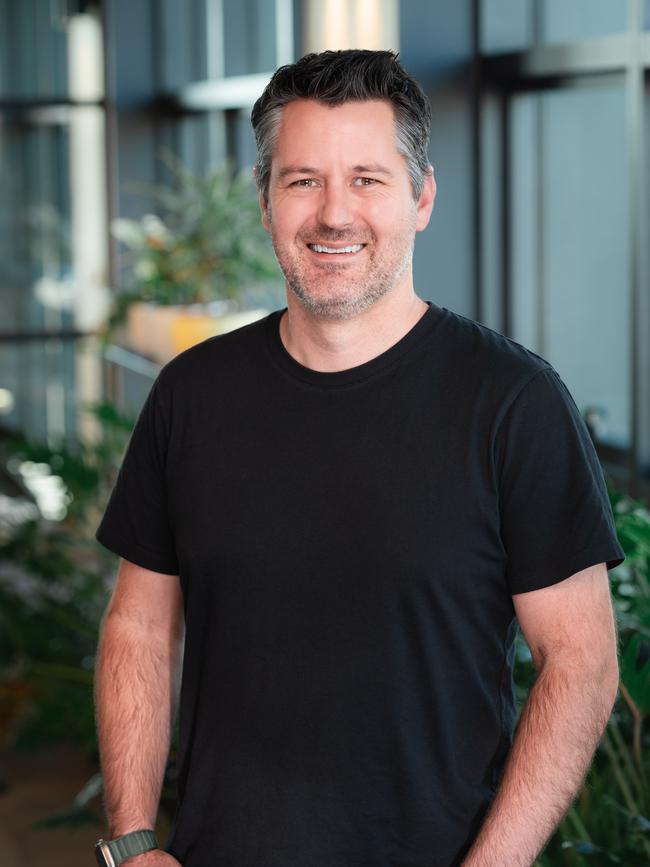Seek using AI to help you land the perfect gig
Like many companies testing the waters with AI, jobs platform Seek is using the new technology. But the personal touch is still critical to your success.

Jobs platform Seek is using artificial intelligence to map the career paths of workers, paying a particular focus on those who might not have been to university.
The ASX-listed company wants to determine whether tertiary education is always necessary for certain roles, as it looks to play a part in the major transition of workers as artificial intelligence and automation are increasingly used to complete tasks.
Seek’s AI general manager Grant Wright, a former management consultant who has been with the tech jobs platform for seven years, said the group was also paying attention to workers who might not always be confident in their skills but have the abilities to apply for certain roles.
“We’re using AI capability to understand more and expose people to more opportunities. It includes things like scoring your resume when you’re looking at a job and telling you that you’re a good fit for a particular role, which we know then drives people that are qualified for a role but are perhaps less confident,” he said.
“We think that’s great in terms of getting people in the room with great opportunities that they might otherwise not have had.”
Mr Wright said Seek had embedded predictive AI tools into the platform’s search function which would suggest related jobs, including recommending people and culture roles to those who had searched for human resources.

The platform was also making assessment of candidate resumes in real time and nudging them toward certain roles via notifications on its mobile app.
Unlike competitor platforms such as LinkedIn, which is heading down the direction of wanting to give every job candidate an AI-powered coach, Seek had different plans, Mr Wright said. The platform doesn’t want to automatically apply for jobs for candidates or just send recruiters a list of eligible names for certain roles.
“Jobs play a very important and emotional kind of role in people’s lives, so personal preferences come into this,” he said.
“Sometimes it’s hard even as an individual to describe exactly what you’re looking for. (We think) recruitment remains through a human centred process supported by AI.”

When it came to further AI application in recruitment, Seek was cautious about the kind of content generative AI tools would produce.
“What we don’t want to do is just take a very small description of what someone’s looking for and use AI to generate a whole lot of text,” Mr Wright said.
The company wanted to use the technology to provide more realistic market insights, which could then tell recruiters how many applicants with the necessary skills actually existed.
“I think some of the early thinking in this space may lead to a lot of content generation but not as much insight and perhaps more noise than signal,” he said.
Part of Seek’s new AI focus included what Mr Wright described as “going beyond the role title to look at granular skills and capabilities”.

“We’re using AI to understand, extract and map people’s career paths, not just considering their role, title and experience. We’re looking at movements and what are their underlying skills and capabilities,” he said. “We see a big role for AI to play to go much more granular to understand those trends.”
Job ads often left out key information or, in some cases, provided too much, Mr Wright said.
The platform also wanted to work out what educational requirements were necessary for roles.
“If you’re looking for a factory manager that needs a bachelor’s degree, and we can understand that not everyone in that role who’s performing successfully has a bachelor’s degree, then we can provide those kinds of insights and open up opportunities for more people, regardless of where or if they went to school as long as they’ve got the capabilities,” he said.
While he expected a number of companies would be quick to embed AI within recruitment, Mr Wright said he was curious as to how long the benefits may last.
“I suspect what people who haven’t been using AI in the past will find is that AI can be quite hard to develop,” he said.
“There will be quick wins there, but a lot of those will commoditise quite quickly, and then further investment will be required to generate the real benefits.”







To join the conversation, please log in. Don't have an account? Register
Join the conversation, you are commenting as Logout